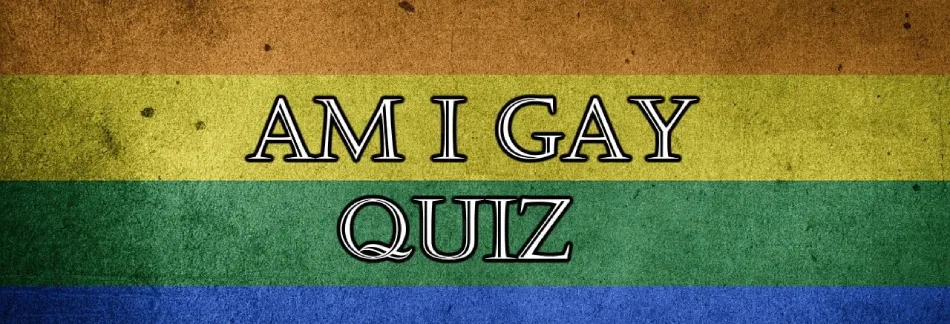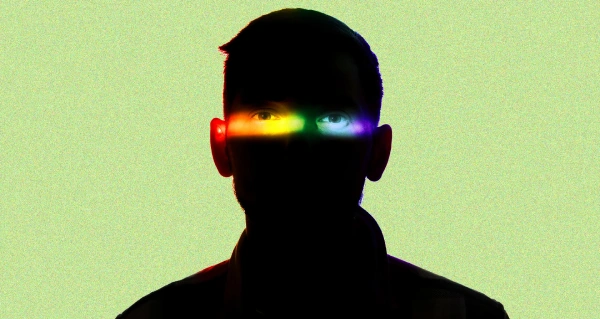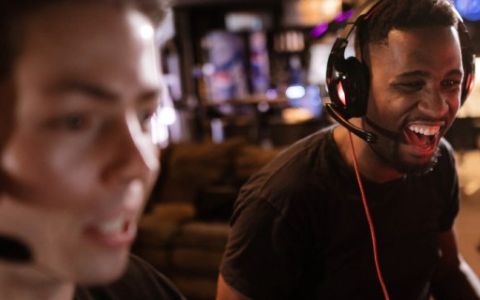
Unfortunately, there is no definite answer to your question and the best way to find out is to explore yourself with this quiz.
This quiz will help you assess whether or not you may be a part of the LGBTQ+ community. It cannot definitively answer your question for you, as it cannot be done through a simple questionnaire, but it can provide more insight into what you are feeling and thinking.
The questions in this questionnaire have been crafted by specialists in the LGBTQ+ community who understand its complexities and what goes into identity formation and exploration. Some questions will ask about your relationships, interests, and feelings; some may seem pointed or personal, but all answers remain anonymous unless you choose to provide additional details about yourself.
Some of the questions that this quiz provides include:
- Are there any hobbies that make me feel a sense of belonging?
- Do I find myself attracted to people outside my gender identity?
- Does my family accept me for who I am?
- Are there any specific organizations that I tend to gravitate towards?
By participating in this quiz, you will gain clarity and insight into what makes up your identity and how that ties in with identities within the LGBTQ+ community. This quiz is an opportunity for healing and growth - understanding ourselves deeply amplifies our ability to act with self-compassion and care for others.
Understanding and Using the "Am I LGBT Quiz" for Self-Reflection
The "Am I LGBT Quiz" is a tool that can help individuals determine their sexual orientation and gender identity. It's important to note that this quiz is not a definitive answer, but rather a starting point for self-discovery and reflection.
The quiz typically consists of a series of questions that address various aspects of a person's life, such as their romantic and sexual attractions, their thoughts and feelings about their gender, and their experiences with discrimination or prejudice.
Some questions may seem personal or uncomfortable, but it's important to answer them honestly in order to get an accurate result. It's also important to remember that there is no right or wrong answer - everyone's journey of self-discovery is unique.
After taking the quiz, individuals may find that they identify as LGBT (lesbian, gay, bisexual, or transgender) or they may discover that they are questioning their sexual orientation or gender identity. Regardless of the result, it's important to remember that everyone deserves respect, acceptance, and support.
The Purpose of Taking the Quiz
The purpose of taking an "am I LGBT" quiz is to help individuals gain a better understanding of their sexual orientation or gender identity. It can be a confusing and overwhelming experience to question one's sexuality or gender, and taking a quiz can provide some clarity and help individuals feel less alone.
The quiz can also serve as a starting point for individuals who may be hesitant to talk to others about their feelings or who are unsure of where to start in exploring their identity. It can provide a non-judgmental and anonymous way to begin the process of self-discovery.
It's important to remember that the quiz is not a definitive answer or diagnosis, but rather a tool to help individuals explore their feelings and identity. It's also important to seek out additional resources and support, such as talking to a trusted friend or family member, seeking therapy, or connecting with LGBTQ+ communities and organizations.
Understanding the Different Sexual Orientations and Gender Identities
When taking an "am I LGBT" quiz, it's important to have a basic understanding of the different sexual orientations and gender identities. Sexual orientation refers to a person's emotional, romantic, and sexual attraction to other people. Gender identity refers to a person's internal sense of being male, female, both, neither, or something else entirely.
Some common sexual orientations include heterosexual (attraction to the opposite gender), homosexual (attraction to the same gender), bisexual (attraction to both genders), and asexual (lack of sexual attraction to any gender). It's important to note that sexual orientation is not a choice and cannot be changed.
Gender identity, on the other hand, is a complex and personal experience that can vary from person to person. Some people identify as male, female, or non-binary (not exclusively male or female). It's important to respect people's gender identities and use the pronouns and language that they prefer.
Taking the time to understand the different sexual orientations and gender identities can help individuals better understand themselves and others in the LGBT community. It's important to approach these topics with an open mind and a willingness to learn and grow.
Common Questions and Misconceptions About Being LGBT
There are a lot of misconceptions about being LGBT, and it's important to address them in any quiz or questionnaire about LGBT identity.
Some common questions and misconceptions include:
By addressing these common questions and misconceptions, a quiz or questionnaire about LGBT identity can help educate people and promote understanding and acceptance.







